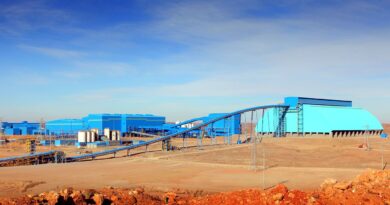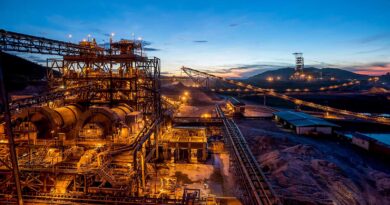Miners and metallurgists are going green
The way businesses of the future will operate is now fundamentally affected by climate change. It is also driving a change in consumer behaviours. In South Africa, the National Development Plan has focused the country on transitioning to a low carbon economy as part of meeting our commitment to limit emissions.
Changing market trends are also prevalent in the lending and project finance environment. Increased environmental risks are making project finance more difficult to secure. Beginning in 2018 Nedbank, FirstRand and Standard Bank announced that they will no longer be financing the Thabametsi’s coal-fired power plant.
This was in line with a change in their respective internal resolutions around the financing of new coal projects. Standard Bank further stated that the financing of future coal projects would need to meet a set of strict criteria.
Recently, Exxaro Resources announced that it has started seeing higher insurance premiums in the renewal of insurance policies due to investor concerns around climate change. The company further stated that while it believes coal is a relevant source of affordable electricity generation for the economy and that it is well positioned to supply this energy source to Eskom, it was identified as a medium- to longer-term risk.
This has led Exxaro Resources to explore expansion of current projects it is running, such as investments in renewables and a plan to transform its closed mines into ‘agricultural hubs’ to benefit wider society.
Major diversified miners such as Anglo American Group, BHP and Rio Tinto have stated that they are not considering thermal coal as part of their long-term strategies.
On 30 September this year, ArcelorMittal, world’s largest steelmaker, announces a group-wide commitment to being carbon neutral by 2050, building on the commitment made in 2019 for its European business to reduce emissions by 30% by 2030, and be carbon neutral by 2050.
Commenting on the 2050 net zero target, before speaking about the challenge of decarbonising the steel industry at the Financial Times Commodities Conference today, Aditya Mittal, President and CFO, said:
“If the world is to achieve net zero by 2050 it will require all parts of the economy in all regions of the world to contribute. As the world’s leading steel company, we believe we have a responsibility to lead the efforts to decarbonise the steel-making process, which today has a significant carbon footprint.”
FORWARD TO FUTURE
Successful mining and metallurgical companies of the future will need to consider the viability of the minerals they mine, their mining and processing technologies, and the energy sources for their operations.
They will also need to take a two-pronged approach to climate change to ensure their businesses remain resilient and relevant. The first is the need to reduce the current carbon-intense areas of their business to reduce their overall GHG contributions.
The second is the need for climate change adaption to the impacts of climate change that are already manifesting. The impacts of climate change could have both positive and negative consequences for operations and these impacts will differ based on the geographic location, mineral, mining method and other factors.




